CAROLINE NICKERSON
What makes a great city? Definitions vary. For some, cuisine is king – good food or go home. Others believe historical significance to be paramount; without battles of old or great monuments to ponder, they lose interest. I measure great cities by the people who live in them. By this metric, Doboj, Bosnia and Herzegovina, stands greatest among them all, and I mean this sincerely. Yes, the food was delicious, the fortress overlooking the city suitably imposing, the mountain scenery beautiful. But the people I met gave me new standards for hospitality, humor, and kindness, utterly wiping the floor with my old ones. Doboj is truly a great city.

I spent the better part of my summer in London, doing research on post-WWII propaganda in the National Archives. This was a wonderful opportunity, and I can’t stress that enough. The documents are fascinating, but sometimes papers are a poor substitute for people. To put it simply, I was lonely. After several quiet weeks, I boarded a Friday afternoon plane to Sarajevo, the capital of Bosnia, with the excitement of seeing a dear friend buoying me through the journey.
Vedrana and I initially met through Prism, which makes the publication of this blog on Prism’s website all the more special to me. I’d always been impressed by her talent and work ethic, and we had been colleagues for a happy two years! When Vedrana was in Germany for the spring, we skyped a few times, and I asked: “How would you feel about having a guest in July?” Incredibly nice people usually don’t come from a vacuum; knowing how lovely Vedrana was, I was certain that her family and friends would be equally so.
I disembarked from the plane in Sarajevo desperately hoping to catch my bus. Though I egregiously mispronounced the name of Vedrana’s city (spelled “Doboj,” I persisted in calling it “Do-BOG” instead “Doboy” for the first part of my journey), through an act of God I somehow made it on the correct bus. As we sped along to Doboj, my first impression of Bosnia was a beautiful blur of green. An idyllic Disney forest has nothing on Bosnia.
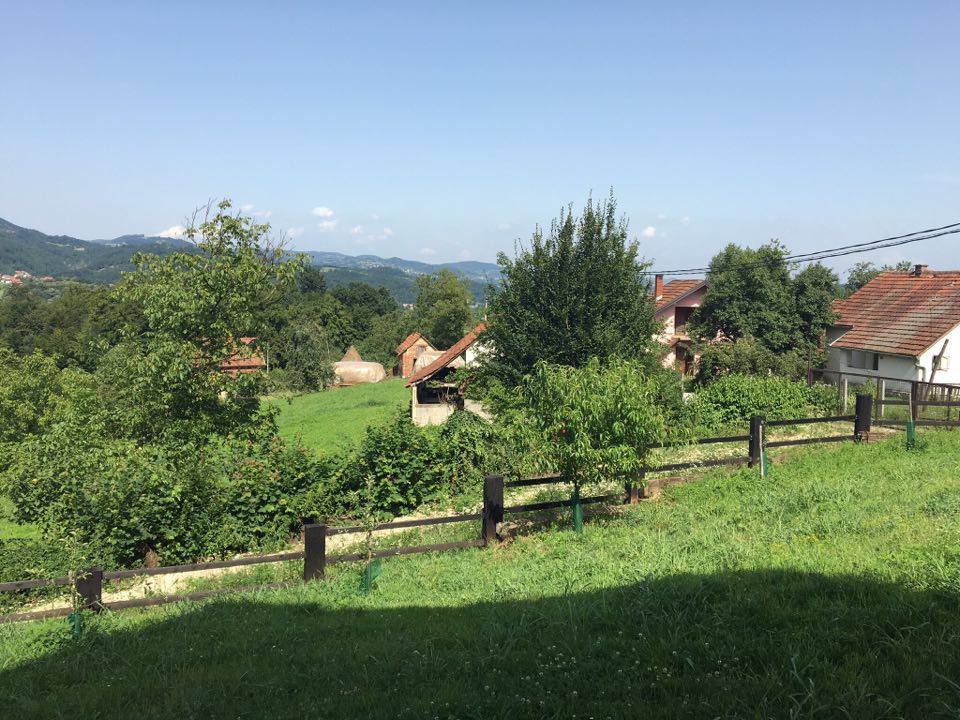
First seeing the mountains around Doboj, I had a thought that would occur repeatedly throughout the next few days: “I didn’t know places like this actually exist. This is so beautiful that it can’t be real.” After meeting Vedrana and her father at the bus station, they promptly escorted me to their home and fed me with home-made mushroom soup and Vedrana’s specialty – chicken risotto, one of the best meals I have ever had. Vedrana is an amazing cook! At the risk of inviting envy, see below for select pictures of my meals. Everything I ate was fresh from the family’s garden nearby the city and excellently prepared.
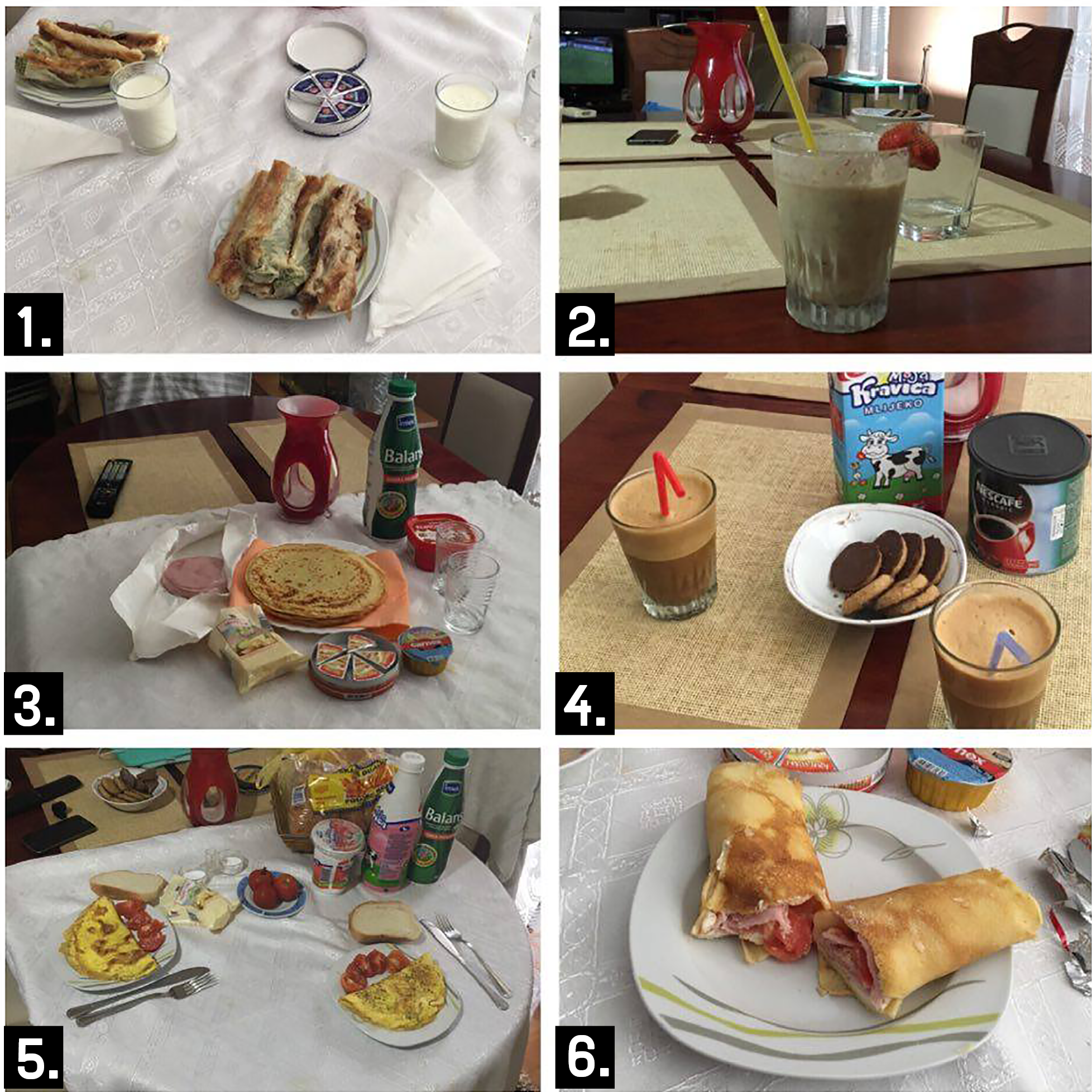
- This meal is called “Burek,” which is a pie with meat. My favorite saying that I learned in Bosnia was “No lunch without meat!”
- This was a delicious smoothie made with strawberries from Vedrana’s garden.
- On my second day, Vedrana made crepes, both sweet and savory.
- This picture showcases Vedrana’s famous iced coffee. Coffee is a really big part of life in Bosnia, and though most people slowly sip it, Vedrana and I both slurp it down.
- Vedrana made an incredibly fresh omelette. Usually I don’t like eggs, but they just taste better in Bosnia. Everything is so fresh.
- This is a closer look at the crepes depicted in image 3. They contained ham, tomatoes and cheese.
Also, being of drinking age in Bosnia, the United States, and everywhere else in the world except for several select Indian provinces (drinking age of 25 – who knew?), I’m allowed to say this. One of my first impressions of Bosnia was the Bosnian beer Vedrana’s father offered me, and it was excellent.
After meeting Vedrana’s father, she introduced me to her friends when we went to “the spot,” or as the boys call it “Lamela.” I soon came to love this place. A corner of a park where different groups of young people go to hang out, “the spot” proved to be a hub of good conversation, laughter and catching up for friends away at different universities throughout most of the year. Vedrana’s friends were so kind and funny, and the effort they took to chat in English and generally include me made me feel like I belonged in “the gang” (though “gang” has a negative and criminal connation in Bosnia, so I’ll call it “the group”).
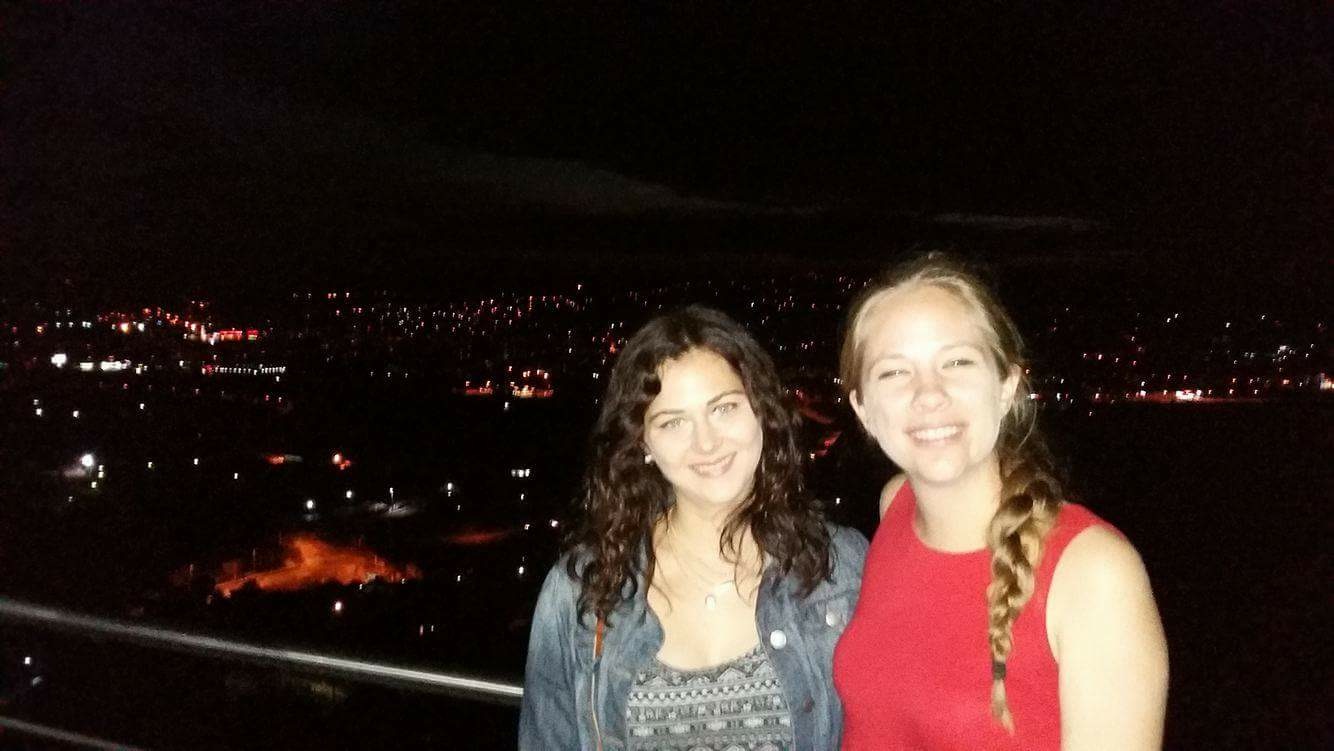
Vedrana’s friends and I bonded over music. We all love Kanye West – all hail Yeezus – and I was actually familiar with “turbofolk” before I came because of a class I took at University of Florida. Shameless plug: Dr. Esther Romeyn is amazing, so take every class with her that you possibly can. “Turbofolk” is a mixture of folk music and techno beats, and the majority of songs are in Serbian. I was a little more enthusiastic about turbofolk than everyone else, because it seems to be a guilty pleasure for a lot of people. However, we all unanimously agreed on the excellence of post-Yugoslav rock.
Ceca can be thought of as the Beyonce of the Balkans. Or is Beyonce the Ceca of the United States?
My first full day in Bosnia consisted of breath-taking mountain views. On a Saturday afternoon we decamped to Vedrana’s vacation home for the day for a barbecue, with her adorable Labrador Retriever, Lucy, in tow. While walking down a side path to a spring with Vedrana and her friends, I was the happiest I’d been in a really long time.
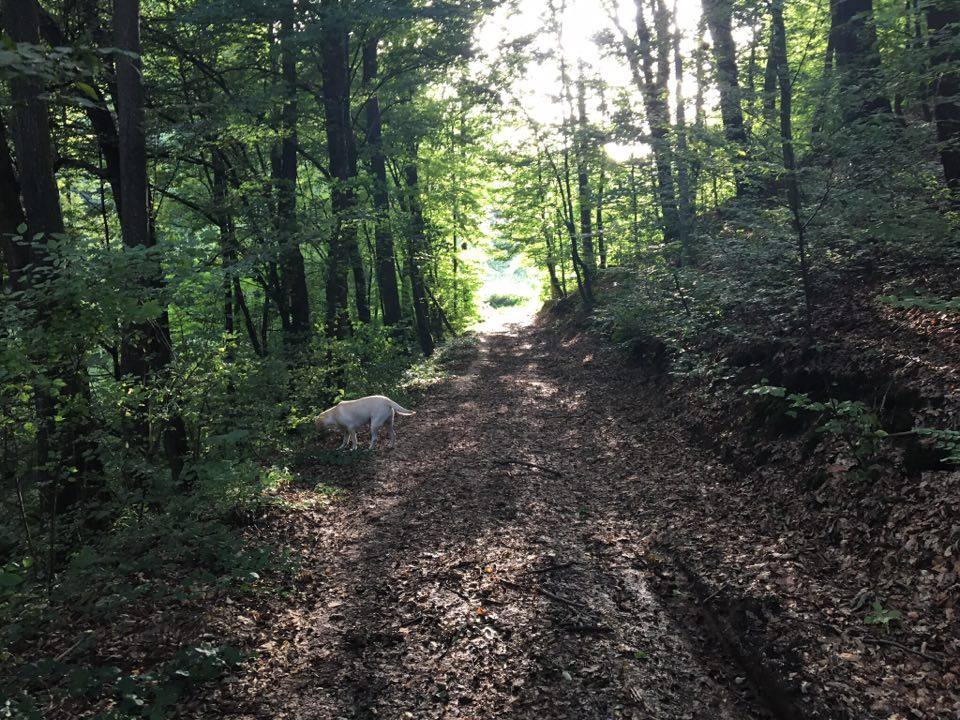
On my second day, we went swimming in a lake named “Goransko jezero,” with my awe at the scenery increasing more and more. The lake had three diving boards, though only the bravest dared to leap from the top. Everything was green, and flowers abounded.
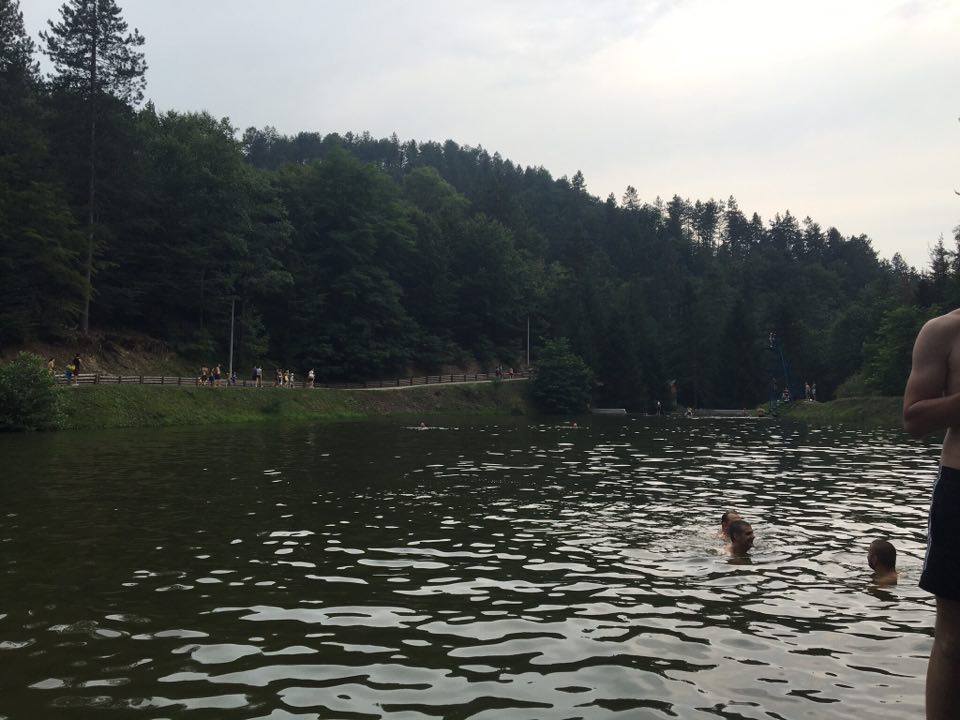
Vedrana’s friends seamlessly integrated me into the flow of life: every day had some sort of activity, and every night ended at “the spot – Lamela,” with some “Jelen” beer purchased at the convenience store for good measure.
Day three was a departure from our previous itinerary. Vedrana, her father, and I took a brief sojourn from Doboj in order to retrieve Vedrana’s mother from Banja Luka, the capital of the Republic of Srpska entity. She had been there helping care for Vedrana’s brother’s 18-day-old baby. Having lunch there, and meeting the baby, Vedrana’s mother, her sister-in-law and her brother deeply touched my heart. Though Vedrana’s mother doesn’t speak English, she, just like Vedrana’s father, made me feel so at home. Their kindness beamed through their smiles. Drinking coffee in their apartment with this beautiful family, I felt such intense gratitude. Every member of Vedrana’s family made me feel like I belonged there.
While in Banja Luka, Vedrana and I roamed around the city a little. We ventured into the old fort called “Kastel,” and meandered around the Vrbas River. Vedrana and her friends had explained a little of Bosnia’s history in the nights prior, and she finished filling in the gaps during our walk. Her father had fought in the civil war, and the country’s political system still copes with its aftermath. Religion and ethnic identity are tightly correlated and represent the root of conflict. The government juggles the needs of Orthodox Serbs, Bosniak Muslims, and Catholic Croats who inhabit the country. Vedrana and her family are Serbian, live in “Република Српскa,” and write in Cyrillic letters. While I was there, I loved hearing Serbian. It sounded musical to me. Though politicians persist in spreading hatred and relying on the past war-conflicts, Vedrana explained me that people can normally live together, as manifested through countless examples of happy co-existence, including multi-ethnic marriages. Unemployment and poverty make it easy for the politicians to manipulate the masses. Most of the American media and society in general still think that there’s war in Bosnia. My own mother asked me if there were landmines. But this country is full of diversity, history, natural resources, tradition and beauty in every sense. This is less known in the media, and I hope to counteract the negative perception of Bosnia as much as I can with this blog.
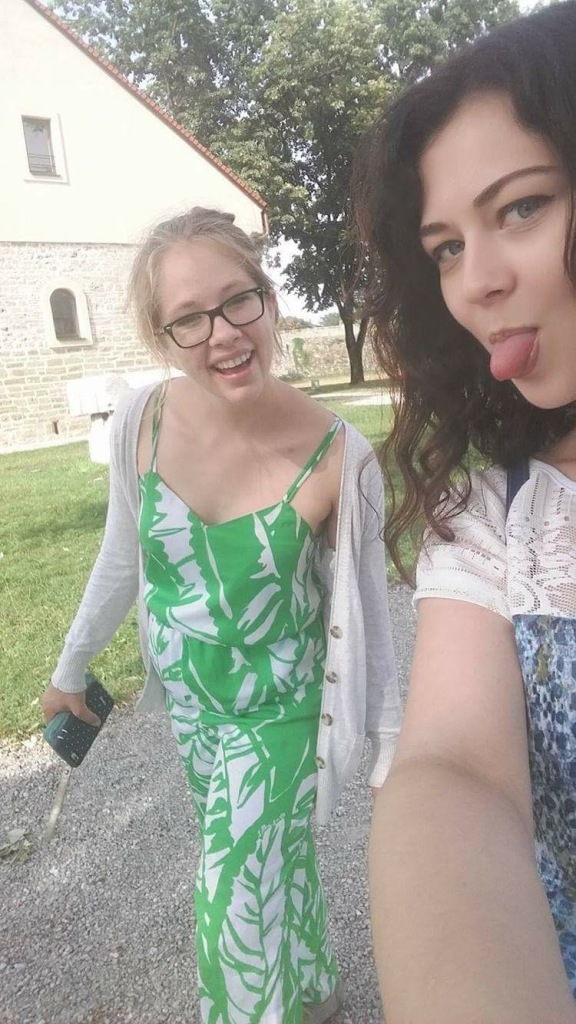
On my last night, I wanted to express to Vedrana’s family and friends how much the weekend had meant to me. Vedrana’s friends spoke and wrote English, so I wrote notes to them in our lingua franca. But in my cards to Vedrana and her parents, I wanted to express myself in their language. As a Chinese language major, I have a lot of feelings about languages. I’m not very good at picking them up, but I’m sincere in my fervor. I think it’s loathsome that English has such linguistic dominance worldwide. A person’s language is his or her culture, and it comes first in a person’s heart. I think learning languages is a sign of respect.
So, making it home from “the spot – Lamela” at 12 a.m. with seven hours until my bus, I knew I had to write bilingual thank-you notes to Vedrana and her parents in English and Serbian Cyrillic letters. I relied on google translate perhaps a bit too much, and I know my Cyrillic handwriting was atrocious. But my sentiment was sincere: thank you for your kindness and your generosity, and thank you for being you.
I sat in the Sarajevo airport on Tuesday morning, eating the sandwiches Vedrana and her mother made me (it doesn’t even need to be said, but – delicious, just like everything else they made!) and looking at the gifts they gave me, one by one. Chocolate, a CD of Balkan music, Bosnian coffee and snacks, and a small, wooden figurine of mushrooms that said “Doboj.” I loved each and every one, and my Doboj figurine sits on my desk in London. Every time I see it, I smile, because it makes me think of the place I went and the people I met. Not everyone can definitively say that they went to one of the greatest cities in the world.
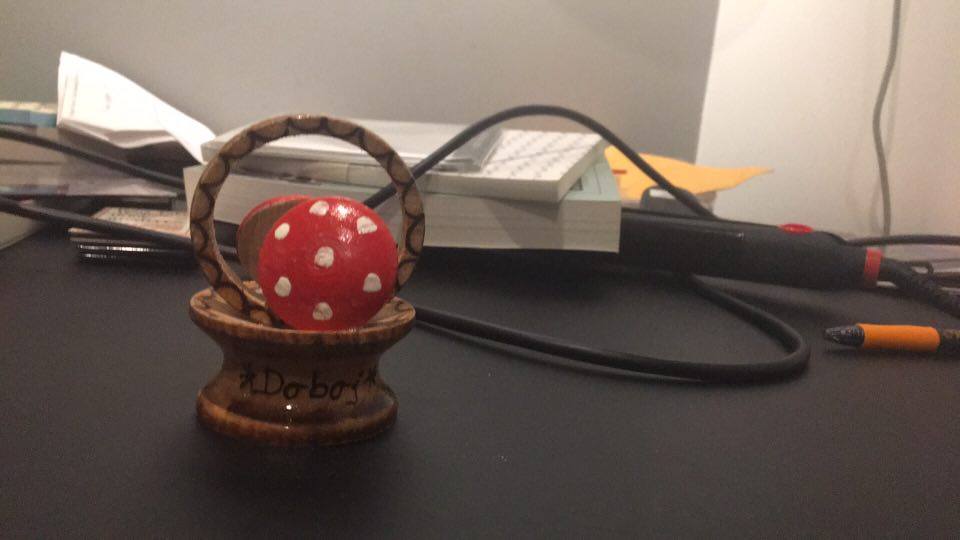
LEARN SOME SERBIAN! A GUIDE FOR BEGINNERS
Do you speak only English, but you want to go to Bosnia? Never fear! Expertly prepared by Vedrana Damjanovic, here are some basic Serbian expressions and words written in phonetic English.
HVALA: “Thank you.”
CHAO: “Hi/bye.”
DOBRO JUTRO: “Good morning.”
DOBAR DAN: “Good afternoon.”
DOBRO VECHE: “Good evening.”
LAKU NOCH: “Good night.”
VOLIM TE: “I love you.”
PEEVO: “Beer.”
DZES BA!: “What’s up?”
SHTA EEMA: “What’s up?”
AERODROM: “Airport.”
KOLEEKO OVO KOSHTA: “How much is this?”
DOVEEDJENJA: “Goodbye.”
CHEVAPEE: “Meat to eat in Bosnia!”
NEMA RUCHKA BEZ MESA!: “No lunch without meat!”
NEESHTA: “Nothing.”
DOBRO: “Good.”
DA/NE: “Yes/no.”
VEEDEEMO SE: “See you.”
ZEEVJELEE: “Cheers!”
PREEJATNO: “Bon Appetit.”
KAKO SEE: “How are you?”

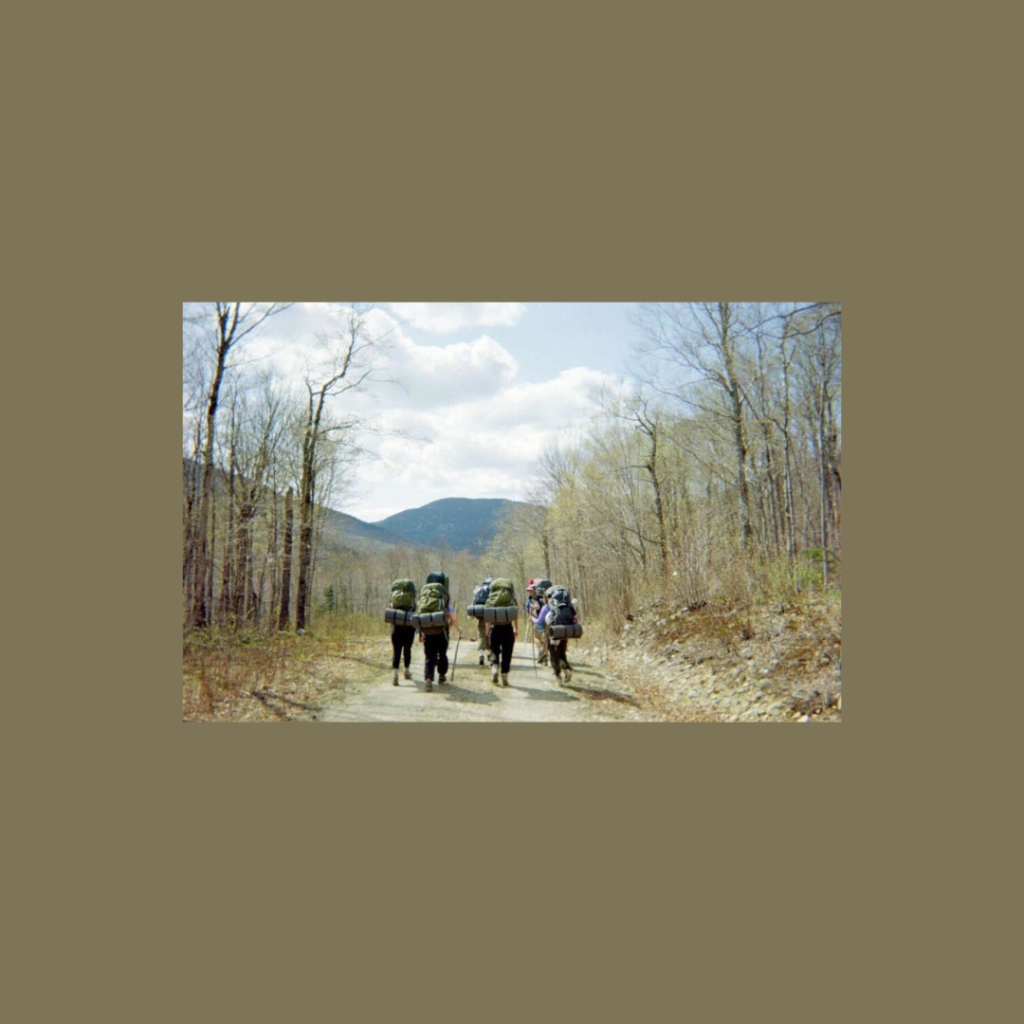
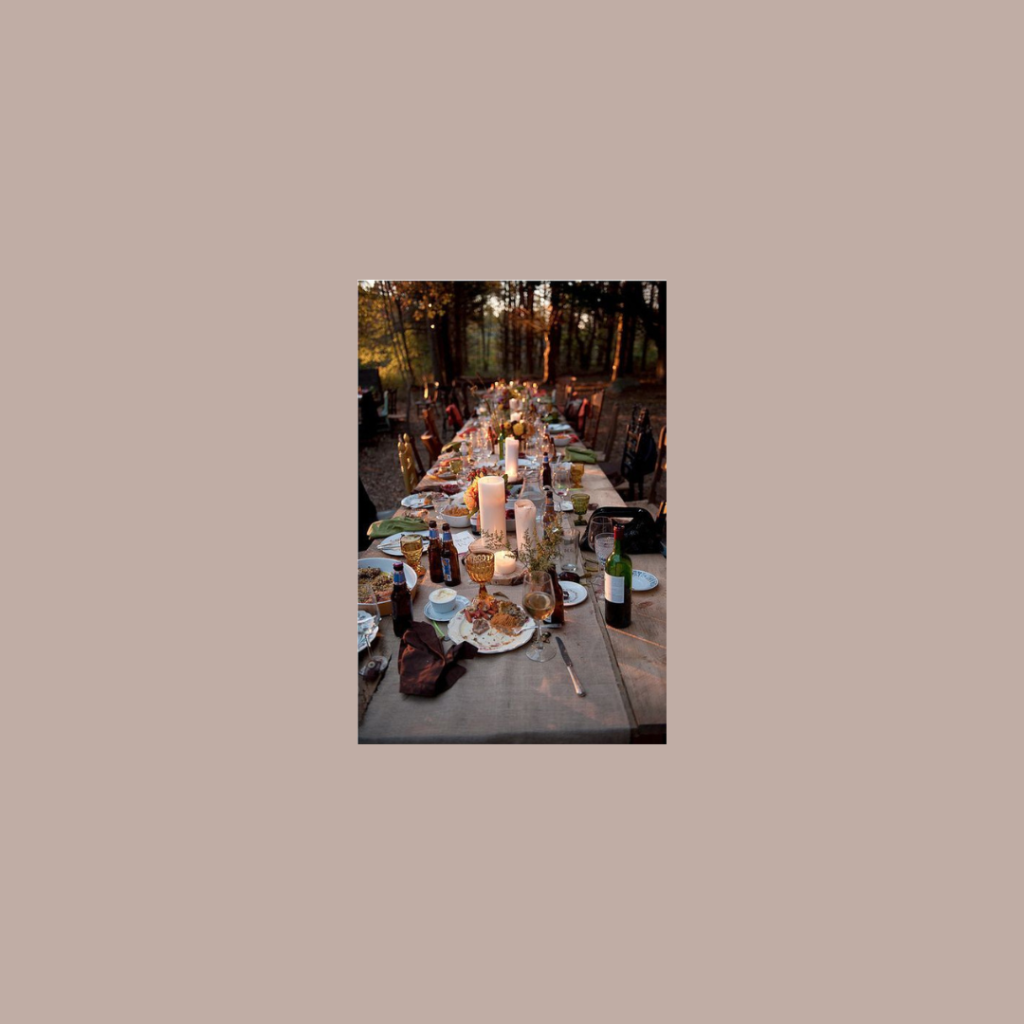

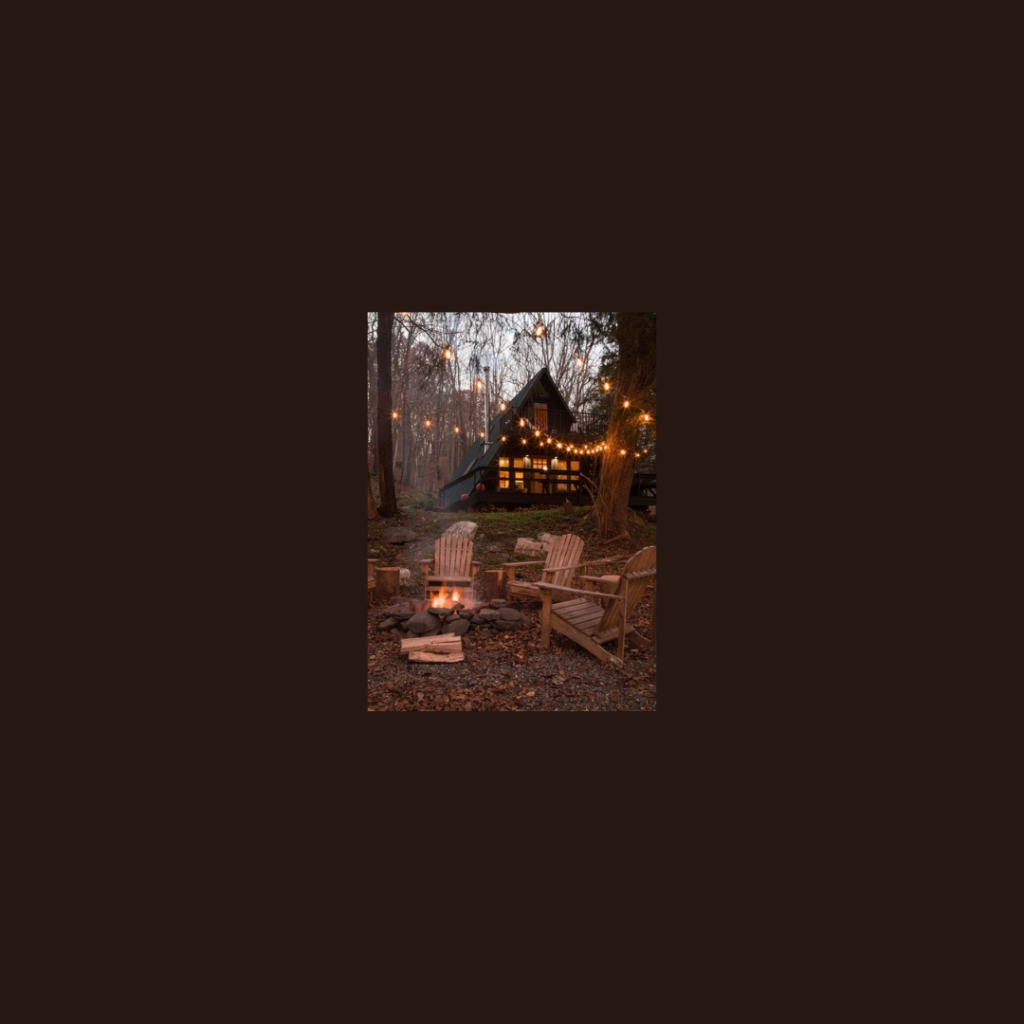
Leave a comment